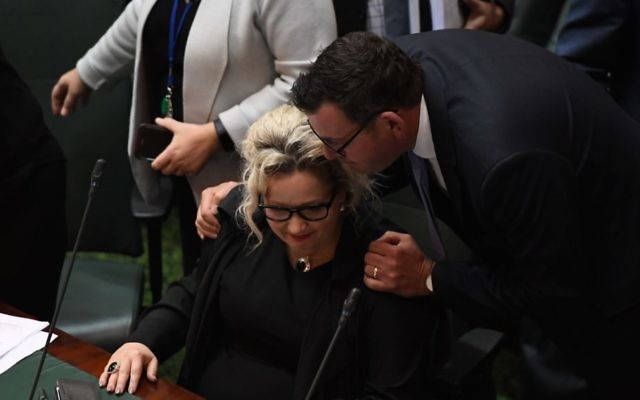Mixed reaction to euthanasia bill
A marathon 26-hour parliamentary sitting has seen terminally ill Victorians get one step closer to gaining access to euthanasia.

A MARATHON 26-hour parliamentary sitting has seen terminally ill Victorians one step closer to gaining access to euthanasia.
The Voluntary Assisted Dying Bill 2017 passed Victoria’s lower house without any amendments last Friday.
If passed by the upper house, the proposed laws will make Victoria the first state in Australia to offer those suffering a terminal illness with unbearable pain and less than 12 months to live the choice of voluntarily ending their lives.
The issue has been met with a mixed response from the Victorian Jewish community.
While recognising “with a great sense of empathy and compassion” that the issue of end of life care and palliative care are “emotionally fraught”, the Rabbinical Council of Victoria (RCV) stands by a statement released in June that “strongly opposes” the proposed bill.
“The life of the human being, which bears the Divine imprint, is the property of its Creator and cannot be disposed of at will,” read the statement.
It also contended that assisted suicide and voluntary euthanasia “corrode the moral structure of society” and “creates great pressures upon the vulnerable” citing the elderly sick who may relinquish their lives so as not to be a burden on others.
Conversely, Rabbi Jonathan Keren-Black supports the proposed bill. Speaking with The AJN, he shared the experience of his teacher, British Progressive Rabbi Tony Bayfield.
After his wife, Linda, suffered a painful and prolonged death, Rabbi Bayfield wrote in The Times, “We are part of a religious tradition that is strict about the sanctity of life, but also compassionate.
“The ability to prolong life has brought with it many benefits but it has also brought with it largely unforeseen consequences – the many ways in which we can keep people alive beyond the point where that life has any meaning either to the person dying or to those around them.
“What kind of God would want life to be prolonged beyond the point of endurance and meaning?” he asked.
Rabbi Keren-Black said, “If Tony and Linda pleaded for medical help at this point, it confirms to me that the right for terminally ill people to end their lives with dignity, if they choose, is the right thing for Jews to fight for.”
Sharing her personal view, Dr Miriam Kuttner, president of the Australian Jewish Medical Federation (Victoria) noted the restrictions in place to ensure safeguards against abuse of the option, and recognised the limitations of medicine.
“The euthanasia bill attempts to provide some choice for those people with a terminal illness to access medication to help them end their life peacefully,” she said.
REBECCA DAVIS

comments